
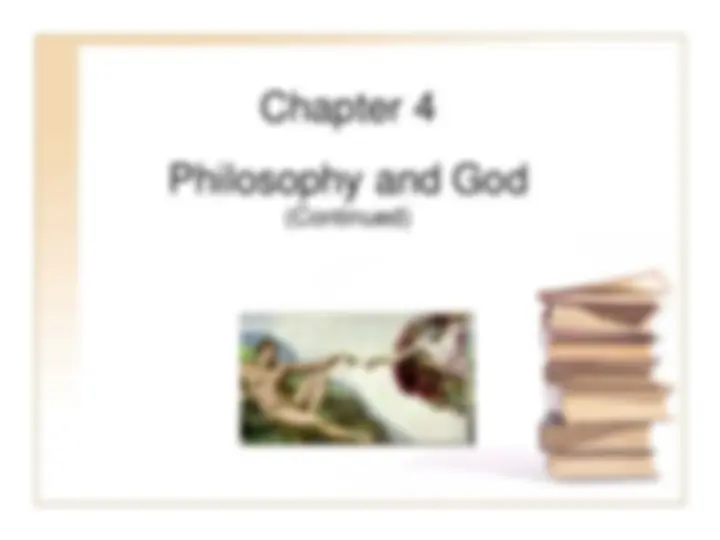

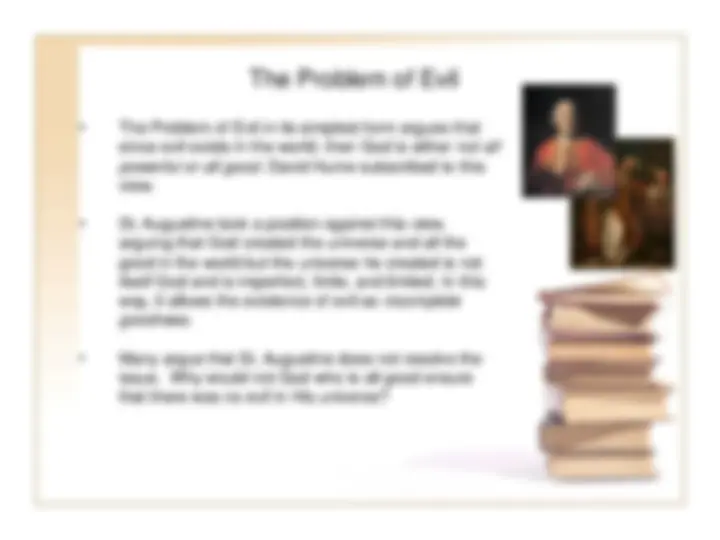










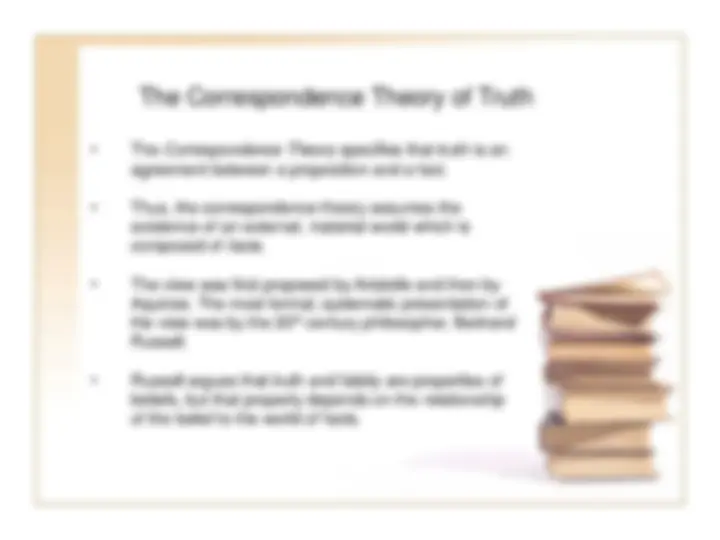
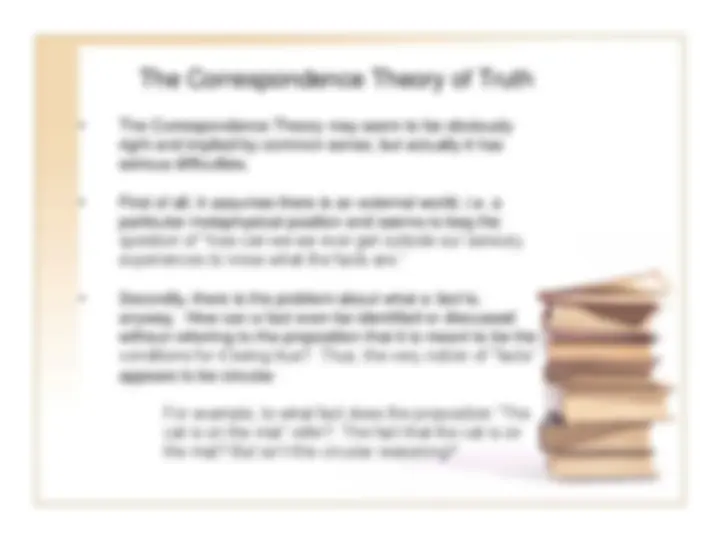
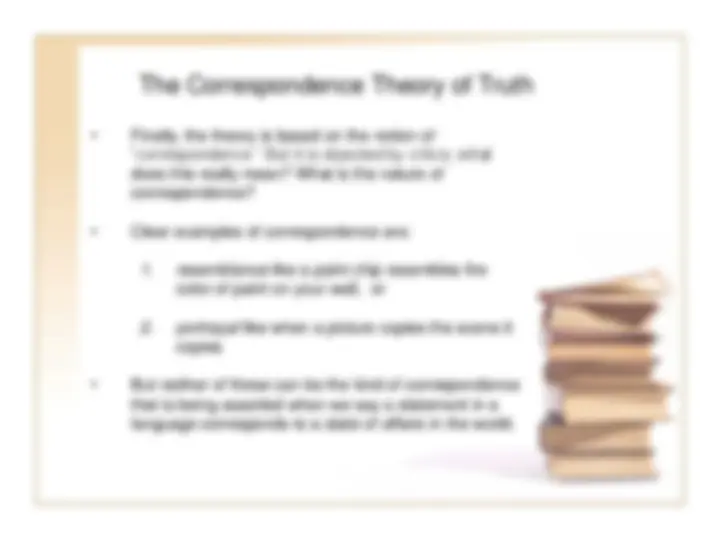
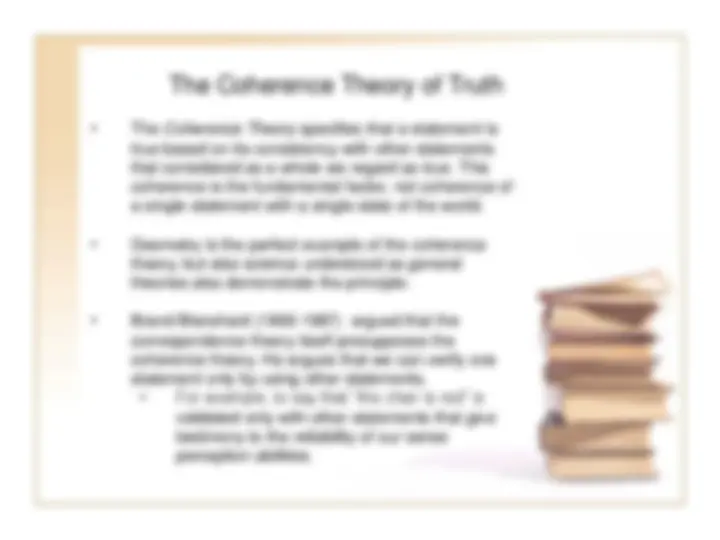
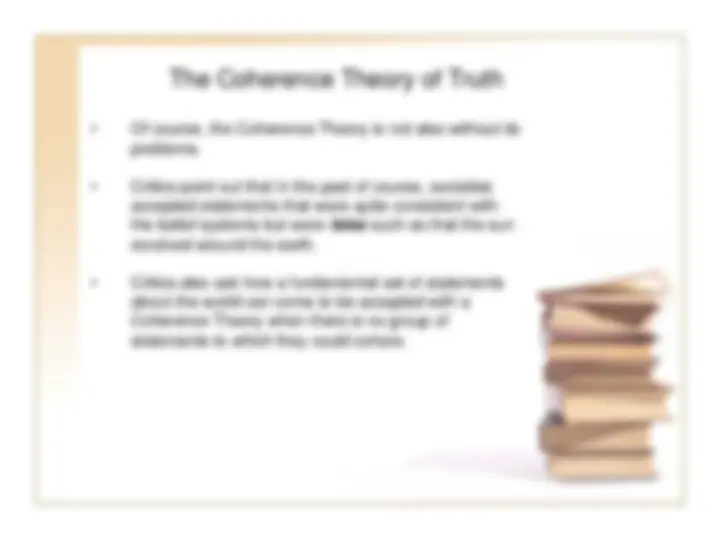
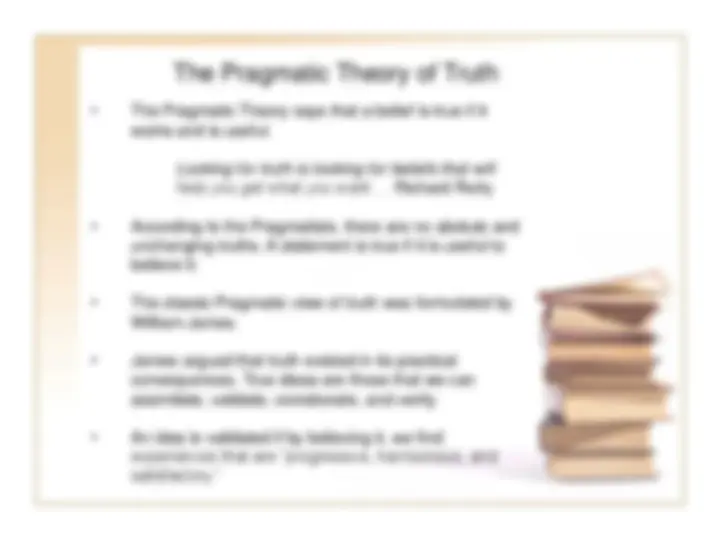
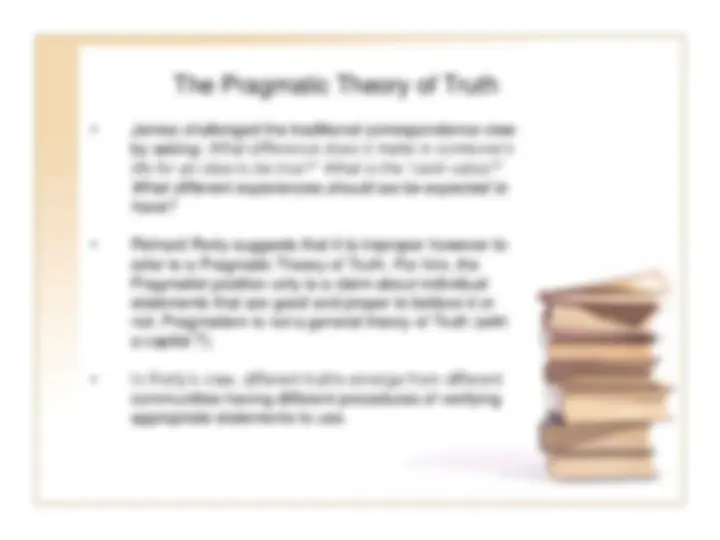
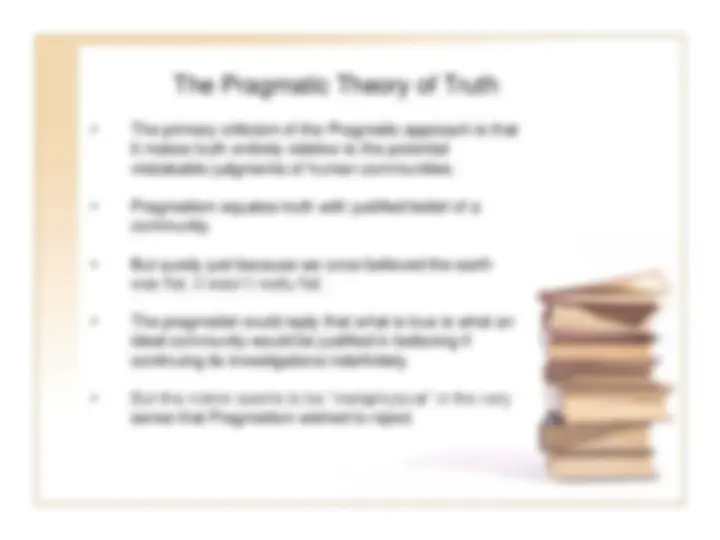

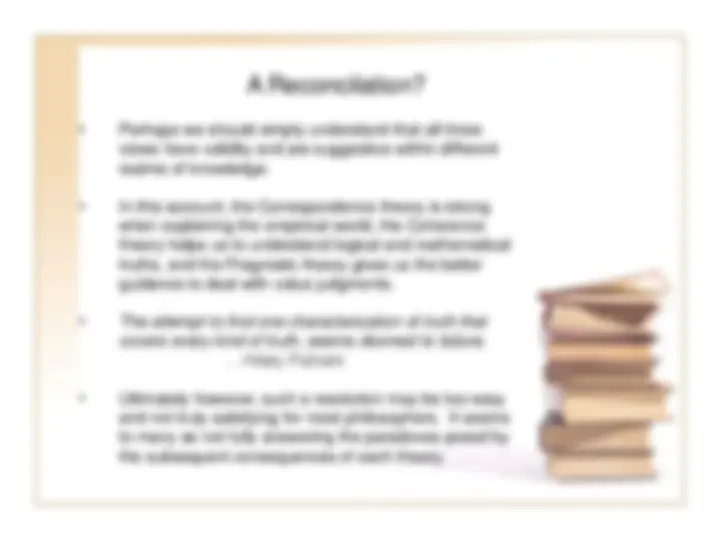





Study with the several resources on Docsity

Earn points by helping other students or get them with a premium plan


Prepare for your exams
Study with the several resources on Docsity

Earn points to download
Earn points by helping other students or get them with a premium plan
Community
Ask the community for help and clear up your study doubts
Discover the best universities in your country according to Docsity users
Free resources
Download our free guides on studying techniques, anxiety management strategies, and thesis advice from Docsity tutors
Various philosophical arguments for and against the existence of God, with a focus on the problem of evil. Discussions include the positions of Atheists, Theists, and philosophers such as St. Augustine, Immanuel Kant, and Sigmund Freud. The document also touches upon the concepts of free will, virtue, and the different theories of truth.
Typology: Slides
1 / 34

This page cannot be seen from the preview
Don't miss anything!



























Electronic/Online Course/Instructor Feedback 13/WI Availability until February 20, 2013. Instruction Sheet will be on Quia site.
An Option is a person's decision among a set of hypotheses. A genuine option is living, forced, and momentous.
Break!
(with a bit ABOUT KNOWELDGE TOSSED IN FOR FREE)
Break!